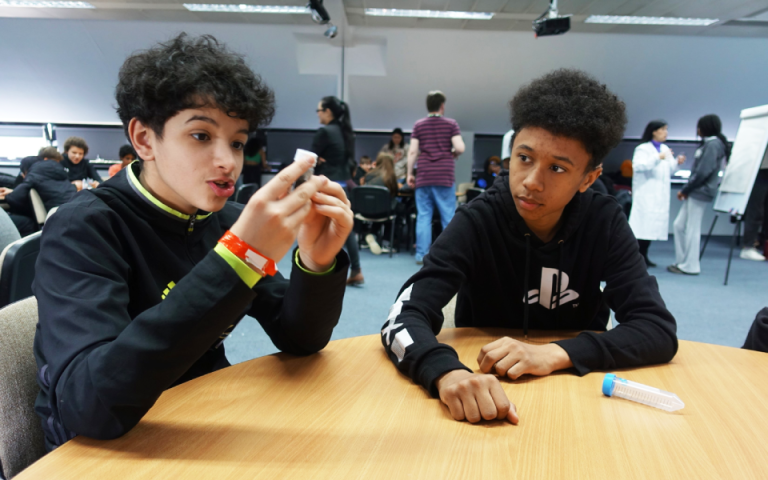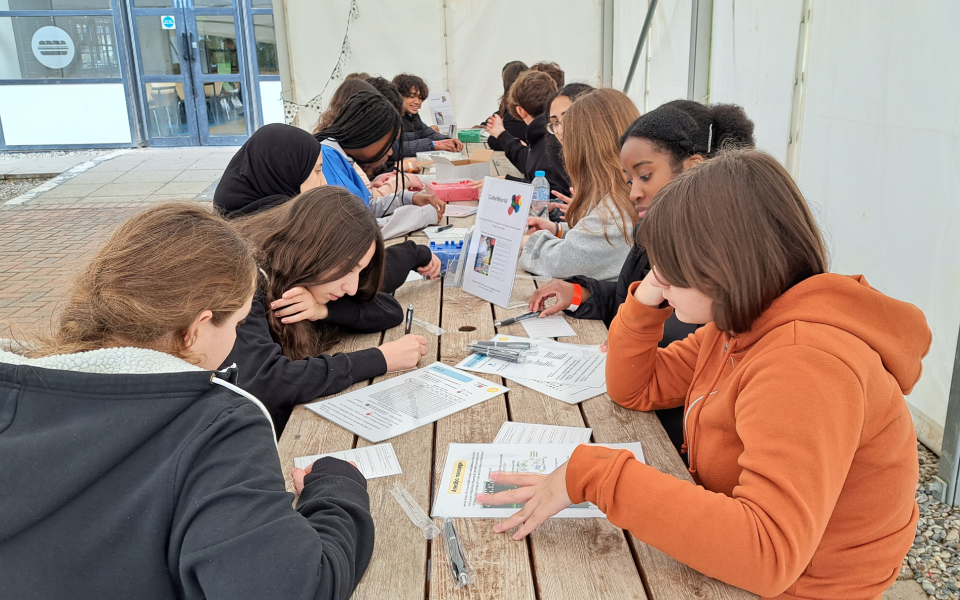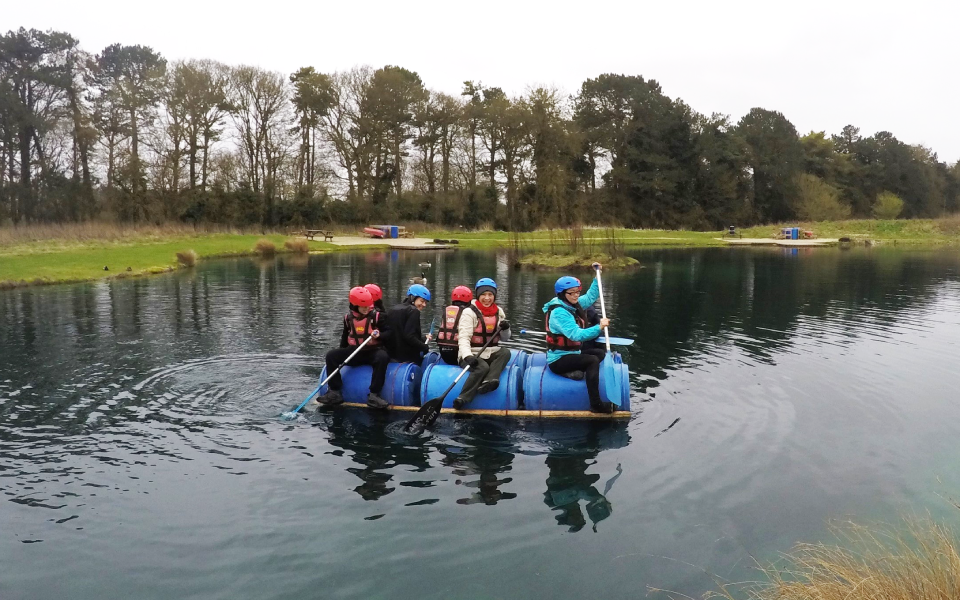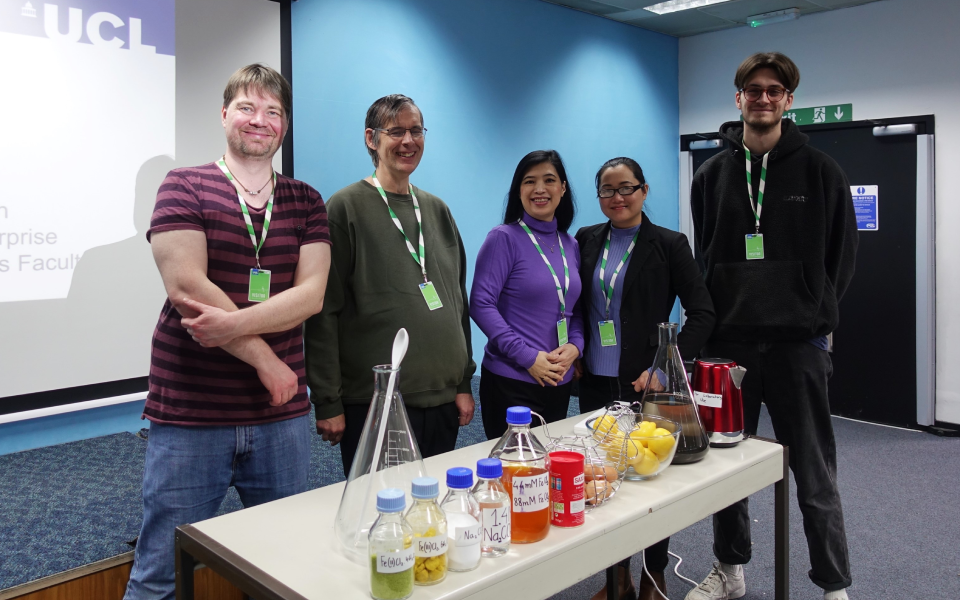Prof Nguyen T. K. Thanh runs Science Adventure Camp to inspire the next generation of scientists
23 May 2023
Professor Nguyen T. K. Thanh (UCL Physics & Astronomy) was awarded the Rosalind Franklin Award and Lecture 2019 for her achievements in the field of nanomaterials and impactful project proposal to run a bespoke Science Adventure Camp to inspire and motivate Year 8-10 students.

Imagine synthesising gold nanoparticles using lemon juice and gold salts! That's just one of the thrilling hands-on experiments 46 London secondary school students experienced at the Science Adventure Camp at PGL Liddington led by Professor Thanh and her team from UCL.
One student exclaimed, "I never knew you could make gold nanoparticles using lemon juice! It was so cool to see the solution change colour and learn how these tiny particles can be used in healthcare such as testing infectious diseases like Covid-19."
The group included girls from underprivileged, or ethnic/cultural minority backgrounds from deprived parts of London, currently underrepresented in STEM careers. The event not only gave these pupils the opportunity to immerse themselves into science, but also to develop their independence and confidence, as they mixed with children from other classes and backgrounds.
In the camp, students explored the wonders of science, testing different solutions to see how the nanoparticles changed colour due to the interaction of light and nanoparticles in solutions. They also explored how the stability of nanoparticles changes if they were protected by a layer of proteins (egg white) against the high concentration of electrolytes (brine).
The students got a real treat of seeing how gold and magnetic iron oxide nanoparticles were made live. They also looked at how magnetic nanoparticles interact with a magnetic field using ferrofluid and magnets. The students were very curious on how these magnetic nanoparticles can be used to cure cancer.
They were also encouraged by Associate Professor Martin Dominik from the University of St Andrews to ponder about whether planet Earth is a special place within the vastness of the Universe, and ultimately about what it means to be human.
Related activities were a suitcase version of an exhibit “A Message from Afar”, discussing the search for extra-terrestrial intelligence, which was originally designed for the 2019 Royal Society Summer Science Exhibition.

In a further task, they reflected on human civilisation and wrote a message to extra-terrestrial intelligence, and then in a turn of perspective, looked into messages from a (supposedly) intelligent civilisation (in fact, ourselves).
UCL Physics & Astronomy Outreach Coordinator Dr Mark Fuller led an exciting activity on building rockets and energy sustainability. The pupils also enjoyed PGL activities such as the Vertical Challenge, Raft Building, Jacob’s Ladder, Zip Wire, Climbing, Archery, Capture Flag, Problem Solving, and a PGL tournament.

“We will continue working with these students in our follow-up events at UCL. We will translate and make the videos accessible for teachers worldwide who can emulate the syntheses of nanoparticles in their own simple settings.”
“The Science Adventure Camp was just the beginning of our efforts to promote STEM education and inspire the next generation of scientists. Our medium- and long-term plans involve working with the secondary school to increase the number of students studying Biology, Chemistry, and Physics at A-level by 50% by 2025-2026.”
“We hope to promote these changes especially among girls and underrepresented ethnic minority backgrounds, so that future cohorts also see an increase in STEM enrolments and more students have the opportunity to explore STEM subjects at the university level.”

Links
- Rosalind Franklin Award and Lecture 2019
- Professor Nguyen T. K. Than’s website
- UCL Physics & Astronomy
Images
- Top: students looking at samples.
- Top middle: students devising a code for transmitting a message by means of coloured cubes.
- Bottom middle: raft-building activity.
- Bottom: the team (from left to right) - Dr Mark Fuller, Professor Martin Dominik; Professor Nguyen T. K. Thanh; Dr Linh Nguyen and Stanley Smith.
 Close
Close

